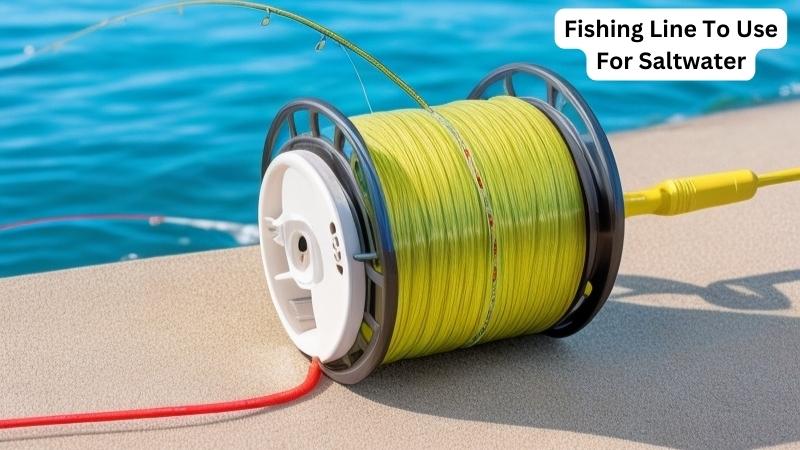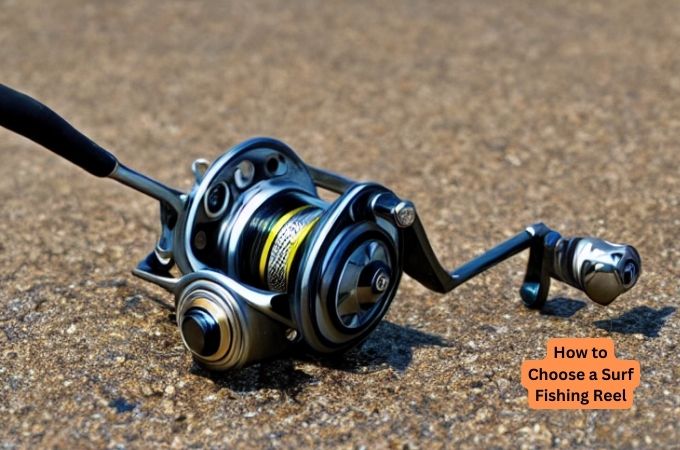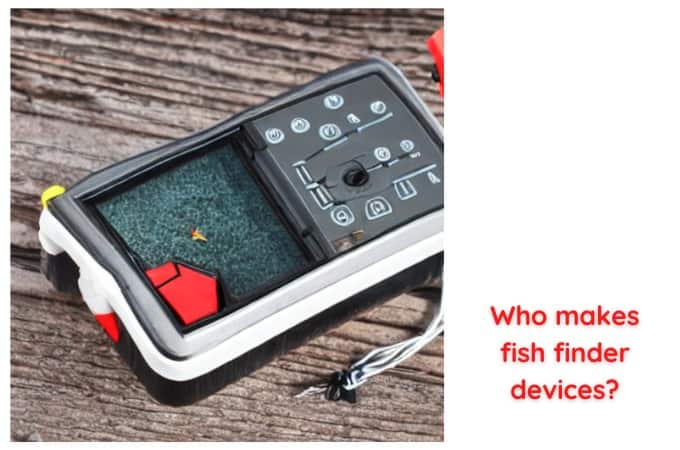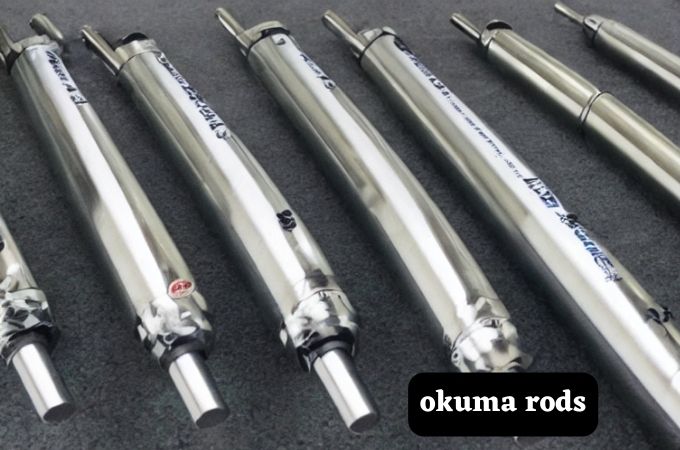What Pound Fishing Line To Use For Saltwater: Expert Guide
Looking to hit the saltwater for some serious fishing action? Choosing the right fishing line is essential for reeling in those big catches and ensuring the line holds up against the harsh conditions. So, what pound fishing line should you use for saltwater? The answer lies in understanding the unique challenges posed by saltwater environments and selecting a line that can withstand the elements. In this article, we’ll dive into the factors to consider and guide you towards the perfect pound fishing line for saltwater adventures. Let’s get started!
What Pound Fishing Line to Use for Saltwater
Saltwater fishing requires specific gear and equipment to withstand the harsh conditions of the ocean. One crucial component of your fishing setup is the fishing line. Choosing the right pound fishing line for saltwater can greatly impact your chances of success and landing that big catch. In this article, we will discuss everything you need to know about selecting the appropriate pound fishing line for saltwater fishing.
Understanding Fishing Line Pound Test:
The pound test refers to the amount of weight a fishing line can handle before breaking. It is an essential factor to consider, as it determines the strength and durability of the line. When fishing in saltwater, you’ll want to select a pound fishing line that can withstand the powerful forces exerted by larger saltwater species.
Different Pound Test Ranges for Saltwater Fishing:
There are various pound test ranges available for saltwater fishing, and the ideal pound test for your specific needs will depend on several factors, including the type of fish you’re targeting and the fishing technique you’ll be using. Here are the commonly recommended pound test ranges for different saltwater fishing scenarios:
- Light Tackle: 6-12 lb. test
- Medium Tackle: 12-20 lb. test
- Heavy Tackle: 20-30 lb. test
- Big Game Fishing: 30 lb. test and above
Factors to Consider When Choosing Pound Fishing Line for Saltwater
When deciding on the appropriate pound fishing line for saltwater, it’s crucial to consider several factors that can affect your fishing experience. Let’s take a closer look at these factors:
Target Fish Species:
The type and size of fish you are targeting play a significant role in determining the pound test of your fishing line. Larger saltwater species, such as marlin or tuna, require heavier-pound test lines to handle their strength and weight. On the other hand, if you’re targeting smaller species like snapper or flounder, a lighter pound test line will suffice.
Fishing Technique:
Different fishing techniques require varying pound test lines. For example, if you’re using heavy lures and casting long distances, you’ll need a higher-pound test fishing line to handle the stress. On the contrary, finesse fishing or light tackle techniques may call for lower-pound test lines that offer more sensitivity and finesse.
Water Conditions:
The water conditions in saltwater environments can be challenging. Factors such as waves, currents, and rough surfaces can put extra strain on your fishing line. For rough conditions, it’s advisable to use a stronger pound test line to ensure it can withstand these challenges.
Reel Capacity:
It’s essential to consider your reel’s capacity when selecting the pound test fishing line. Make sure the pound test you choose falls within the recommended limits of your reel. Using a line that exceeds the reel’s capacity may lead to tangling and potential line breakage.
Tips for Using Pound Fishing Line in Saltwater:
To make the most of your pound fishing line in saltwater, here are some useful tips to keep in mind:
Maintain Line Strength:
Inspect your fishing line regularly for wear and tear, as saltwater conditions can accelerate line degradation. Replace your fishing line if you notice any signs of weakness or damage. Taking care of your line will help maintain its strength and durability.
Use Proper Knots:
Using strong and reliable knots is crucial in saltwater fishing. Ensure you learn and practice tying appropriate knots that can withstand the pressure of saltwater species. Some popular knots for saltwater fishing include the Palomar knot, Improved Clinch knot, and Uni knot.
Consider Line Stretch:
Different fishing scenarios may require varying levels of line stretch. Some saltwater anglers prefer lines with less stretch for better sensitivity and hook-setting power, while others prefer lines with more stretch to absorb the shock of sudden strikes. Consider your fishing style and target species when deciding on the desired stretch of your fishing line.
Spool Line Properly:
When spooling your fishing line onto the reel, ensure it is done correctly to avoid line twists and tangles. Properly spooling the line increases its casting efficiency and reduces the chance of line breakage during battles with saltwater species.
Select High-Quality Line:
Investing in high-quality fishing lines designed specifically for saltwater use is essential. These lines are often more resistant to abrasion, UV damage, and saltwater corrosion. While they may come at a higher price, they offer superior performance and longevity.
Choosing the correct pound fishing line for saltwater fishing is crucial in ensuring a successful and enjoyable fishing experience. Consider factors such as target species, fishing technique, water conditions, and reel capacity when selecting the pound test.
By understanding these factors and following the tips mentioned, you’ll be well-equipped to handle the challenges of saltwater fishing and increase your chances of landing that trophy catch. So, grab your fishing gear and head out to the saltwater, knowing you have the perfect pound fishing line for your adventure.

Faqs for Fishing Line To Use For Saltwater:
When it comes to saltwater fishing, it is recommended to use a fishing line in the range of 10-25 pounds. The exact poundage will depend on the type of fish you are targeting and the fishing conditions.
If you are targeting smaller fish or fishing in calm conditions, a lighter line around 10-15 pounds may be sufficient. However, if you are going after larger fish or fishing in rough waters, a heavier line in the range of 20-25 pounds would be more appropriate to withstand the increased strain and abrasion.
It is generally not recommended to use a freshwater fishing line for saltwater fishing. Saltwater conditions can be harsher on fishing lines due to the salt, UV exposure, and abrasive nature of saltwater species.
Saltwater fishing lines are specifically designed to withstand these conditions, with features like corrosion resistance and higher strength. Using a freshwater line in saltwater may result in reduced performance, increased breakage, and faster deterioration of the line, ultimately compromising your fishing success.
Yes, a braided fishing line can be a good choice for saltwater fishing. Braided lines, made of multiple strands of fibers, offer high strength and increased sensitivity compared to monofilament lines.
They also have excellent resistance to abrasion, making them suitable for saltwater conditions where fish and underwater structures can cause significant strain on the line. Just ensure you choose a braided line specifically designed for saltwater use, as they often come with added features like UV resistance and enhanced durability.
For surf fishing, where you cast your line from the shoreline into the surf, it is recommended to use a fishing line between 15-25 pounds. Surf fishing typically involves targeting larger fish species that frequent the shoreline, such as striped bass, redfish, or snook.
These fish can put up a strong fight and require a heavier line to handle the strain. Additionally, surf fishing often occurs in rougher waters, so a stronger line will offer better resistance against abrasion from waves, sand, and rocks.
Using a fluorocarbon line for saltwater fishing can be a good choice in certain situations. Fluorocarbon lines have low visibility underwater, making them less likely to spook fish that are line-shy or in clear water conditions.
They also have excellent abrasion resistance, which is beneficial in saltwater environments where fish tend to be more aggressive and there are more rough surfaces. However, fluorocarbon lines are generally more expensive than other types, so consider your budget and fishing needs before making a decision.
Final Thoughts:
when determining the appropriate pound fishing line to use for saltwater, it is crucial to consider the type of fish you are targeting and the fishing conditions. For larger, stronger fish such as marlin or tuna, a heavier pound line ranging from 30 to 50 pounds would be ideal to withstand their strength. On the other hand, for smaller saltwater species like snapper or trout, a lighter line in the range of 10 to 20 pounds would suffice. It is important to match the line strength to the fish’s size and the fishing environment to ensure a successful and enjoyable fishing experience in saltwater.



